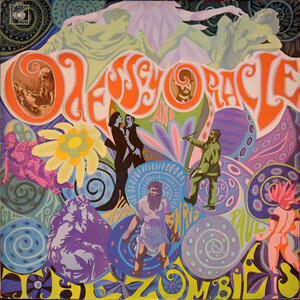
Plan 9 from Bell Labs is a distributed operating system which originated from the Computing Science Research Center (CSRC) at Bell Labs in the mid-1980s and built on UNIX concepts first developed there in the late 1960s. Since 2000, Plan 9 has been free and open-source. The final official release was in early 2015.
grep is a command-line utility for searching plain-text data sets for lines that match a regular expression. Its name comes from the ed command g/re/p, which has the same effect. grep was originally developed for the Unix operating system, but later available for all Unix-like systems and some others such as OS-9.

The system utility fsck is a tool for checking the consistency of a file system in Unix and Unix-like operating systems, such as Linux, macOS, and FreeBSD. The equivalent programs on MS-DOS and Microsoft Windows are CHKDSK, SFC, and SCANDISK.
Mego was an experimental electronic music independent record label based in Vienna, Austria. The label has been superseded by a new company, Editions Mego, which was set up both to keep Mego albums in print and to issue new albums, run by Peter Rehberg a.k.a. Pita.

In computing, ls is a command to list computer files and directories in Unix and Unix-like operating systems. It is specified by POSIX and the Single UNIX Specification.
Almquist shell is a lightweight Unix shell originally written by Kenneth Almquist in the late 1980s. Initially a clone of the System V.4 variant of the Bourne shell, it replaced the original Bourne shell in the BSD versions of Unix released in the early 1990s.
The Unix file system (UFS) is a family of file systems supported by many Unix and Unix-like operating systems. It is a distant descendant of the original filesystem used by Version 7 Unix.
chroot is an operation on Unix and Unix-like operating systems that changes the apparent root directory for the current running process and its children. A program that is run in such a modified environment cannot name files outside the designated directory tree. The term "chroot" may refer to the chroot(2) system call or the chroot(8) wrapper program. The modified environment is called a chroot jail.

BusyBox is a software suite that provides several Unix utilities in a single executable file. It runs in a variety of POSIX environments such as Linux, Android, and FreeBSD, although many of the tools it provides are designed to work with interfaces provided by the Linux kernel. It was specifically created for embedded operating systems with very limited resources. The authors dubbed it "The Swiss Army knife of Embedded Linux", as the single executable replaces basic functions of more than 300 common commands. It is released as free software under the terms of the GNU General Public License v2, after controversially deciding not to move to version 3.

Odessey and Oracle is the second studio album by the English rock band the Zombies. It was originally released in the UK in April 1968 by CBS Records. The album was recorded primarily between June and August 1967. The sessions took place at EMI and Olympic Studios in London.
fstab is a system file commonly found in the directory /etc on Unix and Unix-like computer systems. In Linux, it is part of the util-linux package. The fstab file typically lists all available disk partitions and other types of file systems and data sources that may not necessarily be disk-based, and indicates how they are to be initialized or otherwise integrated into the larger file system structure.

cksum is a command in Unix and Unix-like operating systems that generates a checksum value for a file or stream of data. The cksum command reads each file given in its arguments, or standard input if no arguments are provided, and outputs the file's 32-bit cyclic redundancy check (CRC) checksum and byte count. The CRC output by cksum is different from the CRC-32 used in zip, PNG and zlib.

26 Mixes for Cash is a compilation album of remixes produced by Richard D. James, mainly for other artists between 1990 and 2003. It was released on 24 March 2003 by Warp Records.
The proc filesystem (procfs) is a special filesystem in Unix-like operating systems that presents information about processes and other system information in a hierarchical file-like structure, providing a more convenient and standardized method for dynamically accessing process data held in the kernel than traditional tracing methods or direct access to kernel memory. Typically, it is mapped to a mount point named /proc at boot time. The proc file system acts as an interface to internal data structures about running processes in the kernel. In Linux, it can also be used to obtain information about the kernel and to change certain kernel parameters at runtime (sysctl).
In computing, the sticky bit is a user ownership access right flag that can be assigned to files and directories on Unix-like systems.

Microsoft ScanDisk is a diagnostic utility program included in MS-DOS and Windows 9x. It checks and repairs file systems errors on a disk drive, while the system starts.

Auntie Aubrey's Excursions Beyond the Call of Duty Part 2 is a remix compilation album by English electronic music group the Orb released in 2001. The U.S. and UK editions featured different track listings. All tracks are remixes by the Orb.

Marshall Kirk McKusick is a computer scientist, known for his extensive work on BSD UNIX, from the 1980s to FreeBSD in the present day. He was president of the USENIX Association from 1990 to 1992 and again from 2002 to 2004, and still serves on the board. He is on the editorial board of ACM Queue Magazine. He is known to friends and colleagues as "Kirk".

Farmers Manual is an electronic music and visual art group, founded in Vienna in the beginning of the 1990s. The core members of the collective are Mathias Gmachl, Stefan Possert, Oswald Berthold, Gert Brantner, and Nik Gaffney. Part of the very lively Viennese electronic music scene of the 1990s, Farmers Manual were successfully crossing the boundaries between electronic music, live visuals, experimental graphics, and web design for Zeta Industries.
spell is the standard English language spell checker for Unix, Plan 9, and Unix-like operating systems.











